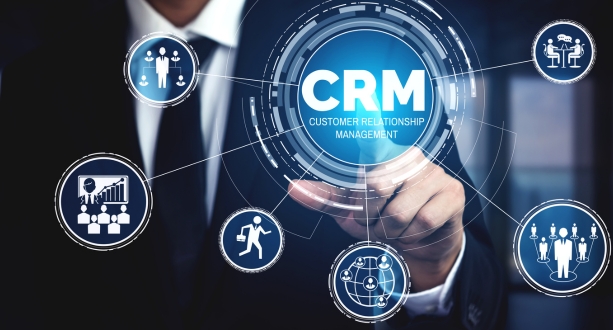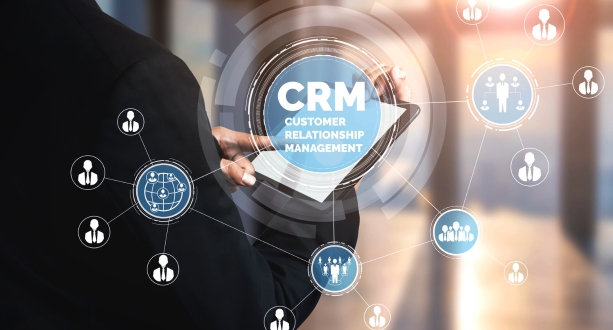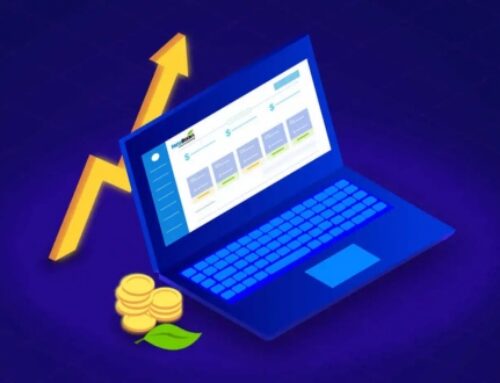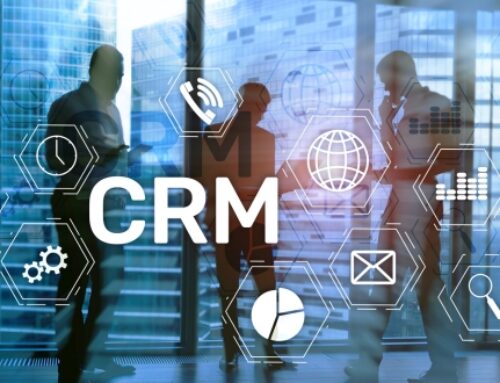Introduction to Salesforce CRM Healthcare Solutions
The healthcare industry, with its intricate web of patient care, data management, and operational intricacies, has long grappled with unique challenges. In a rapidly evolving technological landscape, the need for innovative solutions is more pronounced than ever. This is where Salesforce CRM emerges as a transformative force, revolutionizing healthcare operations and addressing the nuanced needs of the sector.
Navigating Healthcare Challenges with Technology:
In the complex realm of healthcare, challenges abound. From fragmented communication among healthcare providers to the need for seamless patient data management, the industry requires sophisticated solutions to ensure optimal care delivery. Salesforce CRM steps into this intricate landscape as a beacon of technological advancement.
Healthcare challenges often manifest in the form of disjointed communication channels, making it arduous for medical professionals to collaborate effectively. Salesforce CRM, with its robust suite of collaboration tools, streamlines communication, fostering a cohesive environment for healthcare teams. The platform’s capabilities transcend traditional silos, promoting a unified approach to patient care.
Patient data, a cornerstone of healthcare, demands meticulous management. Salesforce CRM addresses this need by providing a secure and centralized repository for patient information. The platform’s data management tools ensure the confidentiality and integrity of sensitive healthcare data, adhering to stringent industry regulations.
Role of CRM in Healthcare Transformation:
The transformation of healthcare operations is imperative, and Salesforce CRM assumes a pivotal role in this journey. The traditional healthcare landscape, laden with manual processes and disparate systems, requires a digital metamorphosis. Salesforce CRM stands as a catalyst for this transformation, orchestrating a paradigm shift in how healthcare is delivered and managed.
Salesforce CRM’s role extends beyond a mere technological upgrade; it represents a fundamental shift toward patient-centric care. By unifying patient data, streamlining communication, and enhancing collaboration, the platform empowers healthcare providers to deliver personalized and efficient care experiences.
The digital revolution in healthcare is not a mere luxury but a necessity. Salesforce CRM recognizes this imperative and aligns seamlessly with the evolving needs of the healthcare industry. The platform’s adaptability ensures that healthcare organizations can navigate the complexities of a digital era without compromising on the core tenets of patient care and data security.
In essence, Salesforce CRM serves as the linchpin for healthcare transformation, addressing challenges with technological acumen and fostering an environment where patient well-being takes center stage. As we delve deeper into the multifaceted facets of Salesforce CRM in healthcare, the promise of a more connected, efficient, and patient-centric healthcare ecosystem unfolds. The subsequent sections will unravel the intricacies of Salesforce CRM’s impact on patient care, data management, and the overarching landscape of the healthcare industry.
Salesforce Health Cloud: Revolutionizing Patient Care
In the dynamic landscape of healthcare, where precision and efficiency are paramount, Salesforce Health Cloud emerges as a revolutionary force, reshaping patient care and elevating healthcare experiences. This section delves into the intricacies of Salesforce Health Cloud, exploring its features, patient-centric approach, data management capabilities, and its profound impact on care coordination.
Understanding Salesforce Health Cloud:
Salesforce Health Cloud represents a paradigm shift in how patient data is managed and healthcare is delivered. This segment offers a comprehensive exploration of the features and capabilities that define Salesforce Health Cloud. From its intuitive user interface to specialized tools designed for healthcare professionals, this subsection unveils the power of Health Cloud in enhancing the overall patient experience.
With a focus on patient-centric care, Salesforce Health Cloud goes beyond traditional electronic health records (EHR) systems. It encapsulates a 360-degree view of the patient, incorporating not just medical history but also social determinants of health. This holistic approach ensures that healthcare providers have a nuanced understanding of each patient, fostering a more personalized and effective care journey.
Patient Data Management and Security:
The sanctity of patient data is non-negotiable in healthcare, and Salesforce Health Cloud takes a proactive stance in managing and securing this sensitive information. This segment delves into the robust data management capabilities of Health Cloud, emphasizing its role in ensuring data accuracy, integrity, and confidentiality.
Salesforce Health Cloud’s commitment to compliance with healthcare regulations, such as the Health Insurance Portability and Accountability Act (HIPAA), forms a cornerstone of this discussion. By providing a secure environment for patient data, Health Cloud not only meets regulatory standards but also instills confidence in healthcare organizations regarding data governance.
Enhancing Care Coordination:
Effective communication and collaboration among healthcare providers are imperative for delivering seamless and coordinated care. This subsection explores how Salesforce Health Cloud serves as a catalyst for improved care coordination. From facilitating real-time communication among healthcare teams to streamlining workflows, Health Cloud optimizes the intricate dance of healthcare delivery.
By breaking down communication barriers and promoting a collaborative ecosystem, Salesforce Health Cloud ensures that every member of the healthcare team is well-informed and aligned with the patient’s care plan. This section elucidates the tangible impacts of enhanced care coordination on patient outcomes, underscoring the pivotal role played by Health Cloud in fostering a patient-centric and collaborative healthcare environment.
In essence, this segment provides a deep dive into the transformative capabilities of Salesforce Health Cloud, shedding light on its role as a linchpin in revolutionizing patient care, securing sensitive healthcare data, and fostering enhanced care coordination among healthcare providers.
Improving Patient Engagement with Salesforce CRM
Patient engagement stands as a cornerstone in modern healthcare, shaping the way individuals interact with their healthcare providers and take charge of their well-being. Salesforce CRM, with its robust capabilities, plays a pivotal role in enhancing patient engagement. This section delves into the various facets of how Salesforce CRM contributes to personalized patient experiences, efficient appointment scheduling, and the empowerment of individuals through patient portals.
Personalized Patient Experiences:
In the realm of healthcare, personalization goes beyond addressing patients by their names; it extends to tailoring interactions and care plans based on individual preferences, history, and needs. Salesforce CRM, with its sophisticated data management and analytics capabilities, takes personalization to new heights.
This subsection explores how Salesforce CRM enables healthcare providers to craft personalized patient experiences. By aggregating and analyzing patient data, CRM equips healthcare professionals with insights that go beyond medical history, encompassing social determinants, lifestyle factors, and more. The result is a nuanced understanding of each patient, allowing for tailored care plans, proactive interventions, and a deeper connection between providers and patients.
Patient engagement is not just a buzzword but a crucial element in healthcare outcomes. The discussion further delves into the significance of patient engagement in fostering trust, improving adherence to treatment plans, and ultimately, enhancing health outcomes.
Appointment Scheduling and Reminders:
Efficient appointment scheduling is a linchpin in ensuring that patients receive timely and appropriate care. Salesforce CRM streamlines this process with intuitive features designed to simplify appointment scheduling for both patients and healthcare providers.
This segment highlights the features within Salesforce CRM that facilitate seamless appointment scheduling. From user-friendly interfaces to automated reminders, CRM enhances the patient experience by reducing the administrative burden associated with managing appointments. Emphasis is placed on the significance of appointment reminders in reducing no-shows and improving overall appointment adherence.
Patient Portals for Empowered Healthcare:
Patient empowerment is a paradigm shift in healthcare, and Salesforce CRM contributes significantly through robust patient portal functionalities. This subsection delves into the transformative benefits of patient portals, illustrating how they empower individuals to take an active role in managing their health.
Salesforce CRM’s patient portals serve as digital gateways that offer individuals unprecedented access to their health information. This discussion explores the features that make patient portals instrumental in improving health literacy, fostering communication between patients and providers, and enabling individuals to make informed decisions about their care.
In essence, this section provides a comprehensive exploration of how Salesforce CRM elevates patient engagement. From personalizing interactions to optimizing appointment scheduling and empowering individuals through patient portals, Salesforce CRM emerges as a catalyst for a more engaged and empowered patient population.
Salesforce CRM in Healthcare Analytics
Harnessing the power of data analytics is a game-changer in healthcare, driving informed decision-making, proactive healthcare measures, and ensuring compliance with regulatory standards. In this section, we delve into how Salesforce CRM empowers healthcare professionals with robust analytics tools, enabling them to glean actionable insights, implement predictive analytics, and meet stringent compliance requirements.
Utilizing Data for Informed Decision-Making:
Data has become the cornerstone of modern healthcare, offering a wealth of information that, when harnessed effectively, can lead to more informed decision-making. Salesforce CRM emerges as a pivotal tool in this arena, providing healthcare professionals with the means to aggregate, analyze, and derive actionable insights from vast datasets.
This subsection explores the critical role of data analytics in healthcare decision-making. From optimizing treatment plans to identifying population health trends, Salesforce CRM’s analytics capabilities empower healthcare providers to make informed decisions that positively impact patient outcomes. Real-world examples and case studies showcase the tangible benefits of leveraging data within the healthcare landscape.
Predictive Analytics for Proactive Healthcare:
Predictive analytics takes healthcare to a new frontier, allowing providers to anticipate health trends, identify at-risk individuals, and implement proactive measures. Within Salesforce CRM, predictive analytics becomes a powerful tool for healthcare professionals, offering them the ability to move beyond reactive care to a more proactive and preventive healthcare model.
This segment highlights the application of predictive analytics within Salesforce CRM. By leveraging historical patient data, CRM enables healthcare providers to predict potential health issues, anticipate disease progression, and intervene proactively. The discussion emphasizes the transformative impact of predictive analytics on patient outcomes, cost reduction, and the overall efficiency of healthcare delivery.
Reporting and Compliance:
In the complex landscape of healthcare, adherence to regulations and reporting requirements is paramount. Salesforce CRM’s reporting capabilities play a crucial role in ensuring healthcare providers meet compliance standards without compromising operational efficiency.
This subsection delves into the reporting features of Salesforce CRM specifically tailored for healthcare compliance. Whether it’s generating compliance reports, ensuring data security, or adhering to industry-specific regulations, CRM’s robust reporting functionalities streamline these processes. The discussion emphasizes the importance of compliance in maintaining patient trust, avoiding legal complications, and upholding the ethical standards of healthcare.
In essence, this section unfolds the transformative role of Salesforce CRM in healthcare analytics. From leveraging data for informed decision-making to implementing predictive analytics for proactive healthcare measures and ensuring compliance through robust reporting, Salesforce CRM emerges as a comprehensive solution that elevates the standards of data-driven healthcare.
Customization and Integration for Healthcare Providers
In the dynamic landscape of healthcare, where workflows and requirements can vary significantly among providers, customization and seamless integration with Electronic Health Records (EHR) are pivotal aspects. This section explores how Salesforce CRM offers tailor-made solutions for healthcare providers, ensuring that the platform aligns seamlessly with their specific needs and integrates harmoniously with EHR systems.
Tailoring Salesforce CRM to Healthcare Needs:
Healthcare providers operate in a diverse and specialized environment, necessitating solutions that cater to their unique workflows and requirements. Salesforce CRM recognizes this diversity and provides a spectrum of customization options tailored explicitly for healthcare organizations.
This subsection delves into the customization capabilities of Salesforce CRM, elucidating how healthcare providers can tailor the platform to align with their specific needs. From configuring patient management workflows to adapting reporting structures, CRM customization becomes a key enabler for optimizing operational processes. Real-world examples showcase instances where customization has significantly improved the efficiency and effectiveness of healthcare delivery.
The discussion emphasizes the importance of aligning CRM with the intricacies of healthcare workflows. By doing so, healthcare providers can harness the full potential of Salesforce CRM, ensuring that the platform becomes a seamless extension of their daily operations.
Integration with Electronic Health Records (EHR):
One of the cornerstones of efficient healthcare delivery is the availability of unified and comprehensive Electronic Health Records (EHR). Salesforce CRM recognizes the significance of this integration and offers seamless solutions to bridge the gap between CRM functionalities and EHR systems.
This segment explores how Salesforce CRM integrates effortlessly with various EHR systems, fostering a unified approach to health records. The benefits of this integration are manifold – from eliminating data silos to providing a holistic view of patient information. Case studies highlight instances where the integration of Salesforce CRM with EHR systems has led to improved patient care, streamlined administrative processes, and enhanced collaboration among healthcare professionals.
The discussion emphasizes how this integration contributes to the continuity of care, enabling healthcare providers to make well-informed decisions based on a comprehensive understanding of patient history. By breaking down data silos and ensuring interoperability between systems, Salesforce CRM becomes a central hub for healthcare information.
Patient Privacy and Compliance in Salesforce CRM Healthcare
Ensuring Patient Privacy:
In the healthcare sector, safeguarding patient privacy is non-negotiable. Salesforce CRM acknowledges the sensitivity of healthcare data and incorporates robust measures to ensure the highest standards of patient privacy.
This section delves into the specific mechanisms employed by Salesforce CRM to protect patient information. Encryption protocols, access controls, and audit trails are among the key features highlighted, demonstrating how the platform provides a secure environment for storing and managing sensitive healthcare data
The discussion extends to the role of user authentication and authorization in Salesforce CRM, emphasizing the multi-layered security measures in place to prevent unauthorized access to patient records. Case studies and real-world examples illustrate instances where Salesforce CRM has been instrumental in maintaining patient privacy, earning the trust of healthcare organizations globally.
The narrative emphasizes that Salesforce CRM goes beyond industry standards in securing patient data, ensuring that healthcare providers can confidently leverage the platform without compromising on privacy. By aligning with the highest standards of data protection, Salesforce CRM becomes a reliable partner in the healthcare journey.
Emphasizing the Importance of Compliance with Healthcare Regulations:
Compliance with healthcare regulations is paramount, and Salesforce CRM recognizes its role in supporting healthcare providers in adhering to these regulations. This subsection outlines how Salesforce CRM aligns with global and regional healthcare compliance standards, ensuring that healthcare organizations using the platform remain compliant.
The discussion covers the specifics of compliance, including adherence to regulations such as HIPAA (Health Insurance Portability and Accountability Act) and GDPR (General Data Protection Regulation). It sheds light on the proactive measures taken by Salesforce CRM to stay abreast of evolving regulatory landscapes, providing healthcare providers with a reliable solution that evolves with the industry.
Real-life examples showcase instances where Salesforce CRM has proven to be a compliant and secure platform for healthcare data management. The narrative underlines the importance of choosing a CRM solution that not only meets but exceeds regulatory requirements, instilling confidence in healthcare providers regarding patient data protection.
In conclusion, this section emphasizes how Salesforce CRM goes the extra mile in ensuring patient privacy and compliance with healthcare regulations. By providing robust security measures and aligning with industry standards, Salesforce CRM becomes a trustworthy ally for healthcare organizations navigating the complex landscape of patient data management.
Future Trends in Healthcare CRM
Exploring Innovations and Emerging Technologies:
The landscape of healthcare is continually evolving, and this section delves into the imminent trends and innovations that will shape the future of Healthcare CRM. From the integration of Artificial Intelligence (AI) to the seamless incorporation of telehealth solutions, the discussion provides a comprehensive outlook on what the future holds for healthcare CRM systems.
- AI-Powered Healthcare CRM:
The role of AI in healthcare is expanding rapidly. This subsection explores how AI is revolutionizing CRM systems, enabling predictive analytics, personalized patient interactions, and more. Real-world examples illustrate the potential of AI in enhancing patient care, optimizing workflows, and providing valuable insights for healthcare providers.
- Telehealth Integration:
As telehealth gains prominence, the integration of telehealth solutions into CRM becomes pivotal. The narrative discusses how Salesforce CRM is at the forefront of accommodating telehealth features, allowing healthcare providers to seamlessly manage patient interactions, appointments, and virtual consultations within the CRM platform. The benefits of this integration, including improved patient access and convenience, are highlighted.
- Interoperability and Data Exchange:
In the future, healthcare CRM systems will play a crucial role in promoting interoperability and facilitating the exchange of healthcare data. This section explores how Salesforce CRM is positioning itself as a hub for interoperability, enabling the seamless exchange of patient information among different healthcare systems. The emphasis is on creating a unified and comprehensive view of patient data for enhanced care coordination.
- Enhanced Mobile Capabilities:
The future of healthcare demands mobility. The discussion delves into the trends of mobile-centric healthcare CRM solutions, allowing healthcare providers to access critical patient information on-the-go. Salesforce CRM’s commitment to enhancing mobile capabilities is showcased, emphasizing its role in facilitating remote patient management and improving healthcare accessibility.
- Predictive Analytics for Proactive Care:
The use of predictive analytics within healthcare CRM systems is becoming more prevalent. This subsection explores how Salesforce CRM is harnessing predictive analytics to identify health trends, predict patient needs, and facilitate proactive healthcare measures. Case studies demonstrate instances where predictive analytics within Salesforce CRM have led to improved patient outcomes and more efficient healthcare delivery.
In conclusion, this section provides a forward-looking perspective on the trends that will define the future of Healthcare CRM. By exploring innovations and emerging technologies, including AI, telehealth integration, interoperability, enhanced mobile capabilities, and predictive analytics, the narrative positions Salesforce CRM as a dynamic and adaptive solution for the evolving needs of healthcare providers.
Conclusion
Salesforce CRM emerges as a transformative force in the realm of healthcare solutions. This robust platform, specifically tailored for the unique challenges of the healthcare sector, not only addresses current industry hurdles but also paves the way for an innovative and patient-centric future.
Salesforce Health Cloud, with its advanced features and patient-focused modules, stands as a testament to the platform’s commitment to revolutionizing healthcare delivery. From personalized patient experiences to streamlined care coordination, Salesforce CRM plays a pivotal role in enhancing efficiency, improving patient engagement, and fostering a holistic approach to healthcare.
The integration of cutting-edge technologies like AI, predictive analytics, and telehealth positions Salesforce CRM at the forefront of healthcare innovation. The emphasis on data security, compliance, and customization ensures that healthcare providers can trust and tailor the platform to meet their specific needs.
As the healthcare landscape continues to evolve, Salesforce CRM remains agile, adapting to emerging trends and technologies. Its role in shaping the future of healthcare is not only evident in the present capabilities but also in its commitment to embracing the advancements that will define the healthcare industry’s landscape. Salesforce CRM, with its Healthcare Solutions, is not just a platform; it’s a catalyst for positive change in healthcare delivery, ultimately leading to better patient outcomes and an empowered, tech-enabled healthcare ecosystem.
Salesforce CRM Healthcare Solutions is a specialized platform designed to address the unique needs and challenges of the healthcare industry, providing tools for patient engagement, data management, and more.
Salesforce Health Cloud enhances patient care by centralizing patient data, improving care coordination, and offering personalized patient experiences.
Yes, Salesforce Health Cloud prioritizes patient privacy and complies with healthcare regulations, ensuring the secure handling of sensitive health information.
Healthcare providers can tailor Salesforce CRM to their specific needs, aligning the platform with unique workflows and processes.
Yes, Salesforce CRM seamlessly integrates with Electronic Health Records (EHR) systems, providing a unified and comprehensive view of patient health records.









